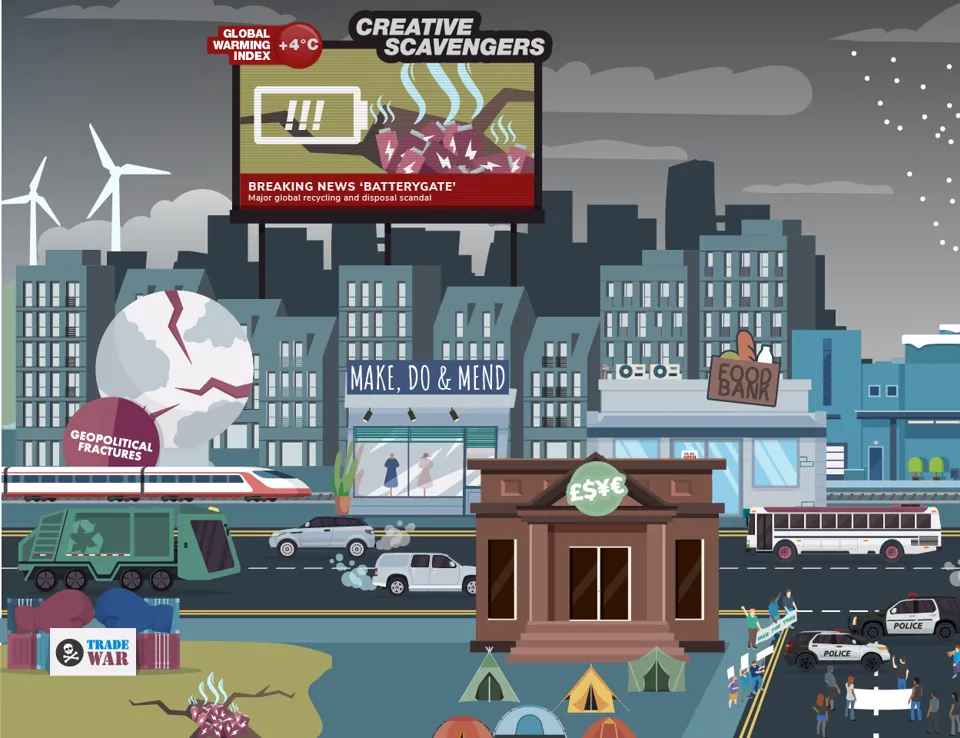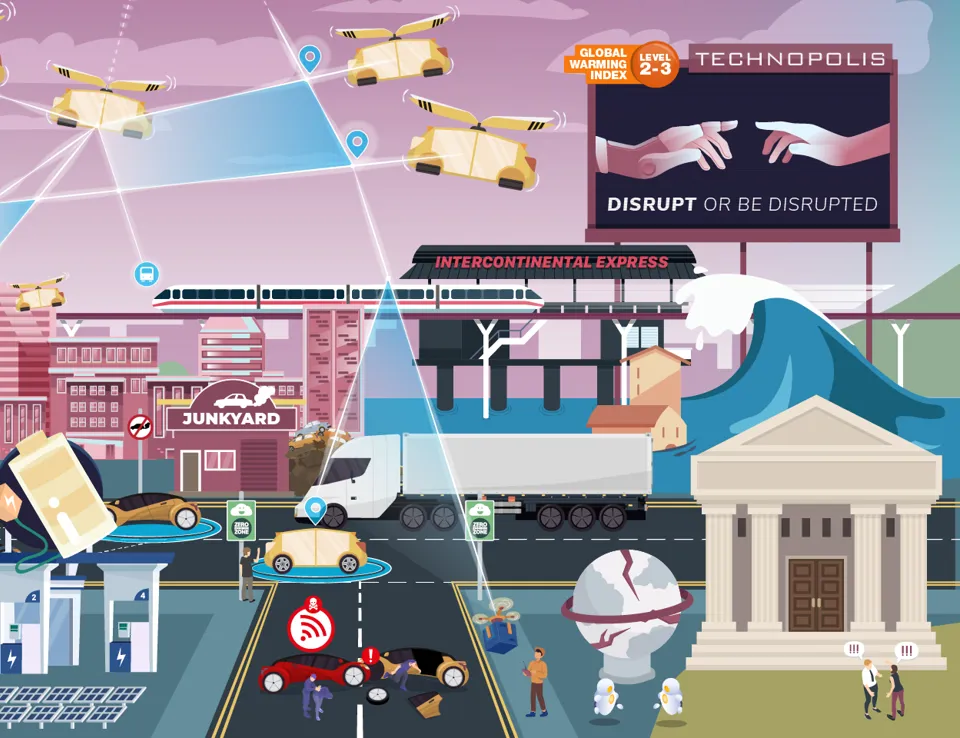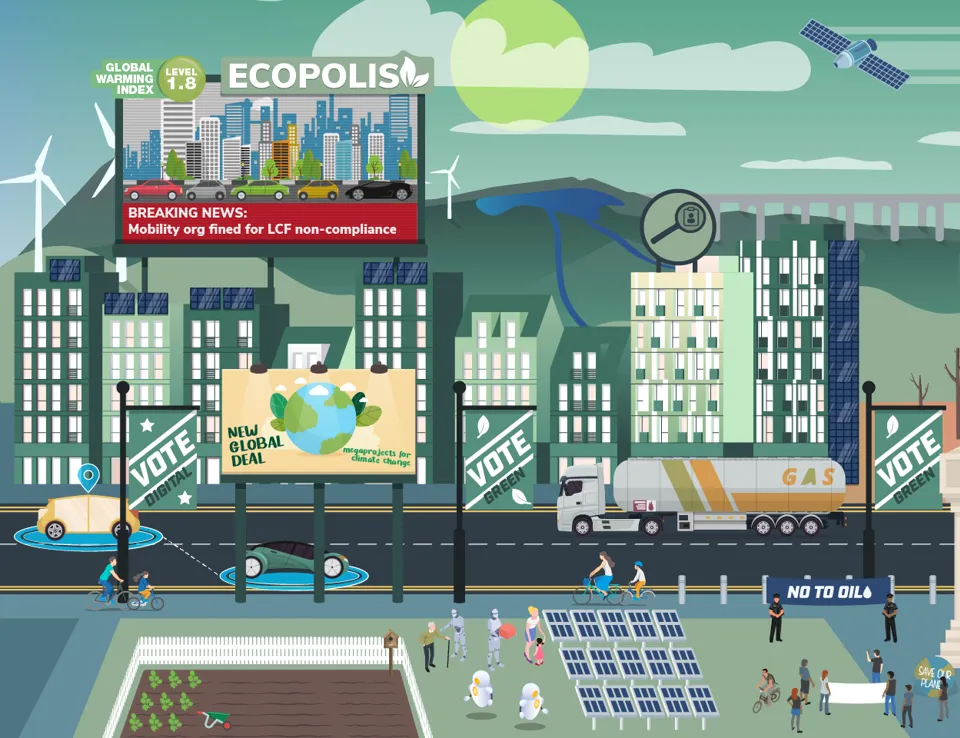Digitopolis: Ricardo's scenarios for 2035 explained

A world characterised by digitally driven cooperation and virtual services. If you’re not part of the digital revolution, then you’ll be left behind. We need digital engineering and virtual collaboration tools to solve global, cross-sector challenges.
A comparatively stable world with abundant digital resources following ground-breaking developments in cost-effective technologies during the 2020s. Now, ‘if you’re not part of the digital revolution you’re not part of anything’. Online communities and AI are the norm, with consumers preferring to interact with businesses through social media. These digital advances, along with greater collaboration, have reduced overall energy consumption and helped to tackle the climate crisis. Incremental progress in the spread of renewables, the hydrogen economy and sustainable fuels have done likewise. However, a period of instability and slowdown in GDP growth followed a ‘Cloud Crisis’ – a hacking attack that caused a global internet blackout and led to widespread fake news and misinformation. People commute and travel less – indeed, excessive leisure travel is frowned on now the world can be explored using virtual reality. ‘Usership’ has replaced ‘ownership’ following a rapid expansion of mobility as a service and other shared service.
-
Online communities and AI are the norm
-
Newcomers to the market disrupting established competition
-
Droughts, floods and extreme weather
-
Reduction in travel and commuting with excessive leisure travel frowned upon
-
Preference shifting from ownership to "usership" and a rapid shift to MaaS and related shared services
-
Major advances in digital technology enable access to abundant digital resources
-
Slowdown in GDP growth but world is largely stable following a cloud crisis where fake news and misinformation was prevalent
-
Digital progress reduced overall global energy consumption contributing to climate change
-
Incremental progress in the spread of renewables, the hydrogen economy and sustainable fuels
-
Move towards solving community issues and collaboration
-
World is largely stable with minor regional issues and uncertainties
-
Limited advance in physical technology
-
Autonomous vehicles and designated walking areas commonplace in cities
-
Consumers prefer to interact with businesses through social media

"In the world of Digitopolis, if you aren't part of the digital revolution then you aren't part of anything. This is a comparatively stable world with abundant digital resources following ground-breaking developments in cost-effective technologies during the 2020s. These advances, along with greater collaboration, have reduced overall energy consumption and helped to tackle the climate crisis. Incremental progress in the spread of renewables, the hydrogen economy and sustainable fuels have done likewise. ‘Usership’ has replaced ‘ownership’ after a rapid expansion of mobility as a service and other shared services. And people are also commuting and travelling less – indeed, excessive leisure travel is frowned on now the world can be explored using virtual reality.”
Angela Johnson, VP and Head of RSC EMEA

"We see a host of technical solutions in ‘Digitopolis. Semiconductor and storage advances, quantum computing, a digital twin of the earth, digital sharing platforms, virtual infrastructure and digitally-enhanced manufacturing – all enabled by AI, data science and more powerful analytical capabilities. Online communities are the norm, with consumers preferring to interact with businesses through social media. However, the world experiencing instability and a slowdown in GDP growth following a ‘Cloud Crisis’ – a hacking attack that caused a global internet blackout and led to widespread fake news and misinformation."
Adrian Schaffer, President of Emerging Mobility









